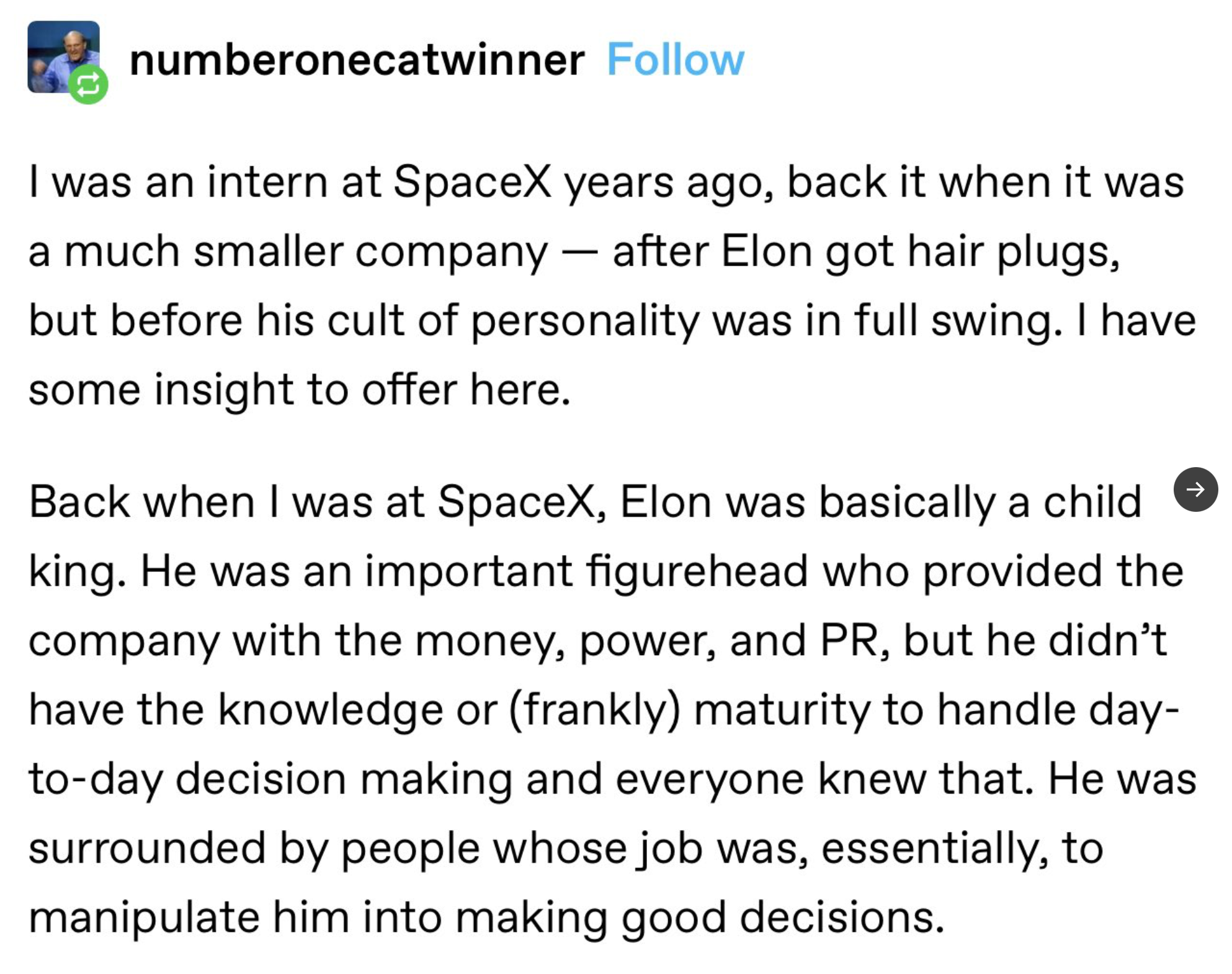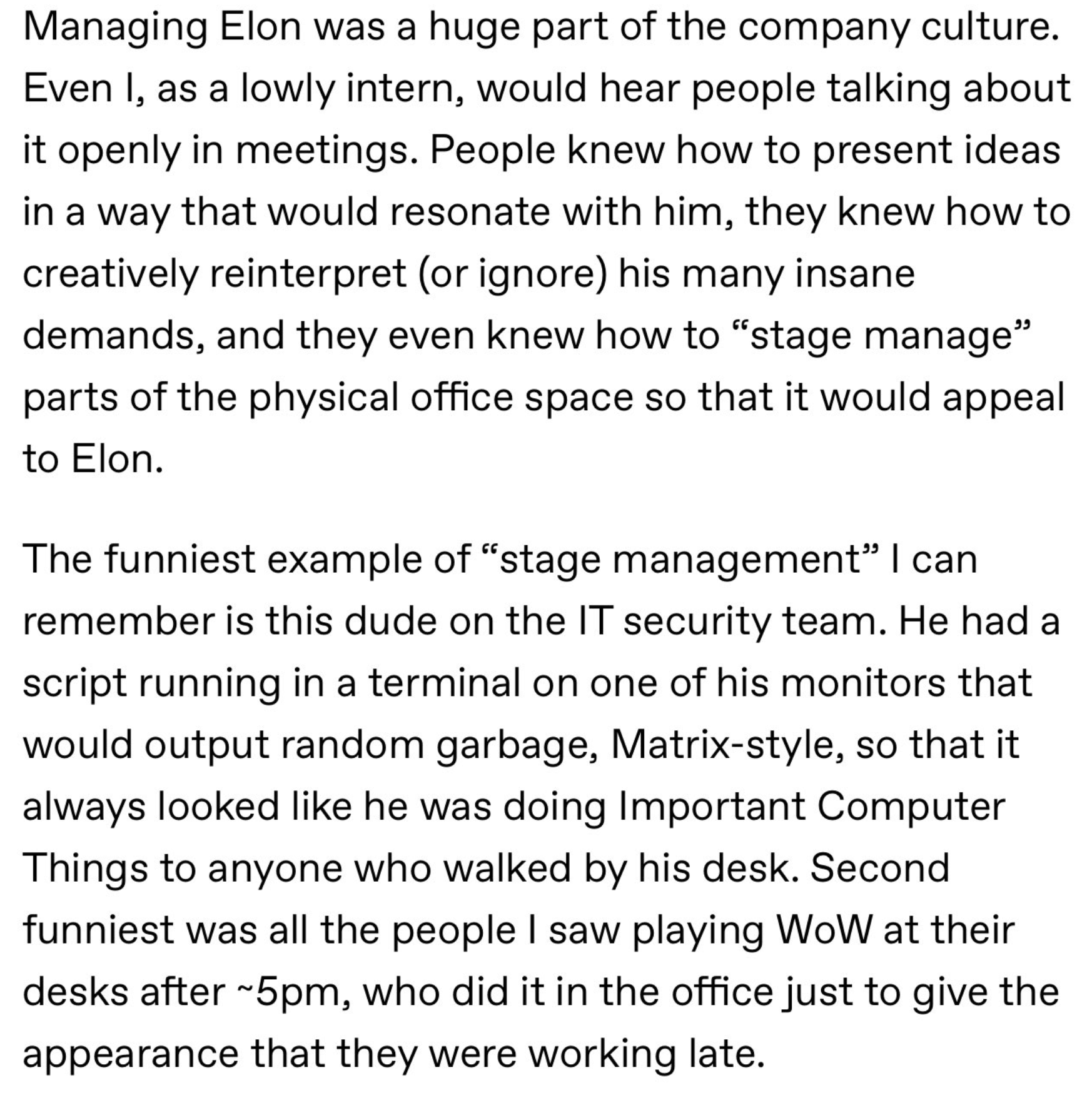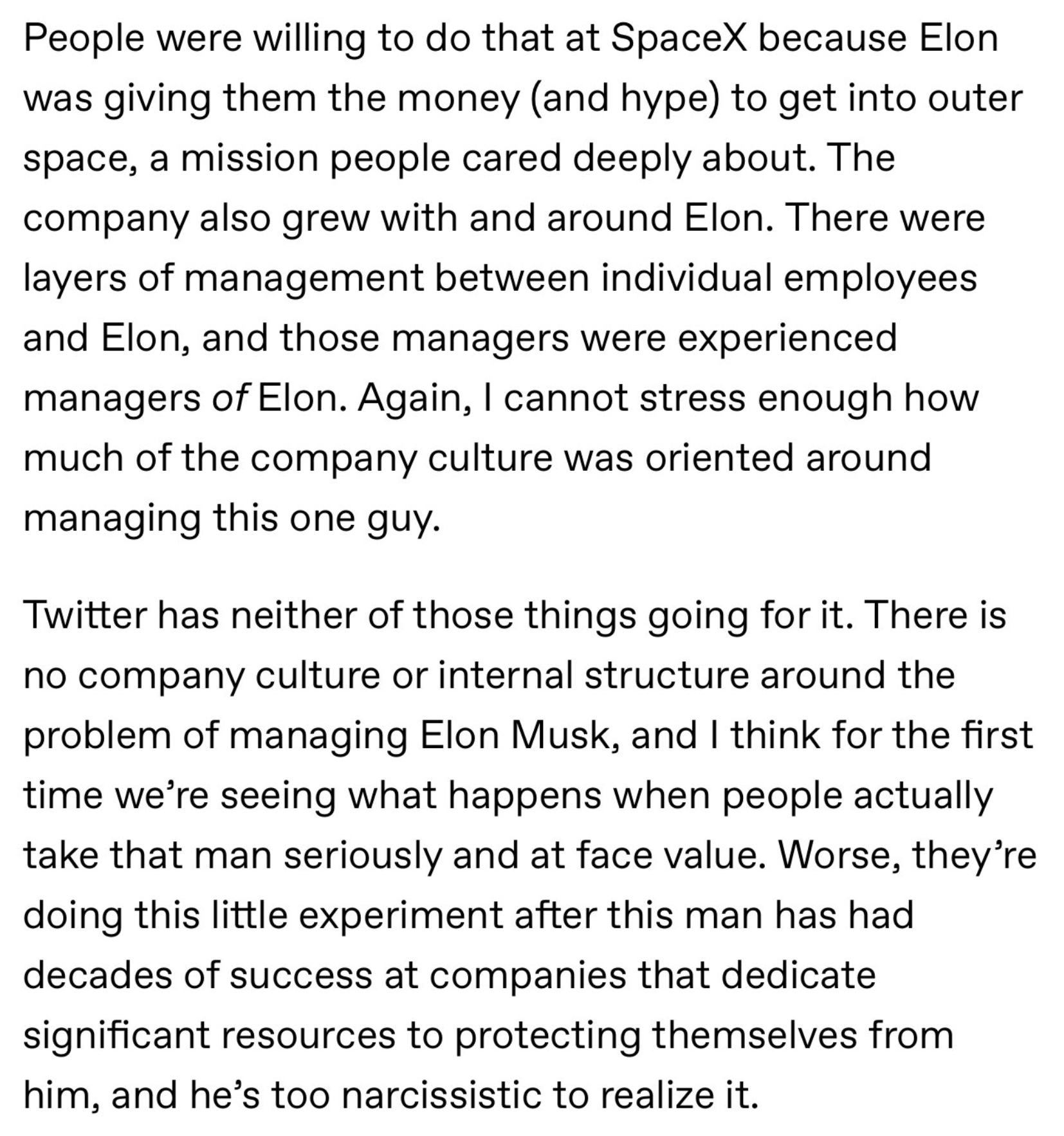Bill Woodcock on Nostr: Eh, ok, I give up. Here's what the guy said: "I was an intern at SpaceX years ago, ...
Eh, ok, I give up. Here's what the guy said:
"I was an intern at SpaceX years ago, back it when it was
a much smaller company - after Elon got hair plugs,
but before his cult of personality was in full swing. I have
some insight to offer here.
Back when I was at SpaceX, Elon was basically a child €
king. He was an important figurehead who provided the
company with the money, power, and PR, but he didn't
have the knowledge or (frankly) maturity to handle day-
to-day decision making and everyone knew that. He was
surrounded by people whose job was, essentially, to
manipulate him into making good decisions.
Managing Elon was a huge part of the company culture.
Even I, as a lowly intern, would hear people talking about
it openly in meetings. People knew how to present ideas
in a way that would resonate with him, they knew how to
creatively reinterpret (or ignore) his many insane
demands, and they even knew how to "stage manage"
parts of the physical office space so that it would appeal
to Elon.
The funniest example of "stage management" I can
remember is this dude on the IT security team. He had a
script running in a terminal on one of his monitors that
would output random garbage, Matrix-style, so that it
always looked like he was doing Important Computer
Things to anyone who walked by his desk. Second
funniest was all the people I saw playing WoW at their
desks after ~5pm, who did it in the office just to give the
appearance that they were working late.
People were willing to do that at Space because Elon
was giving them the money (and hype) to get into outer
space, a mission people cared deeply about. The
company also grew with and around Elon. There were
layers of management between individual employees
and Elon, and those managers were experienced
managers of Elon. Again, I cannot stress enough how
much of the company culture was oriented around
managing this one guy.
Twitter has neither of those things going for it. There is
no company culture or internal structure around the
problem of managing Elon Musk, and I think for the first
time we're seeing what happens when people actually
take that man seriously and at face value. Worse, they're
doing this little experiment after this man has had
decades of success at companies that dedicate
significant resources to protecting themselves from
him, and he's too narcissistic to realize it."



"I was an intern at SpaceX years ago, back it when it was
a much smaller company - after Elon got hair plugs,
but before his cult of personality was in full swing. I have
some insight to offer here.
Back when I was at SpaceX, Elon was basically a child €
king. He was an important figurehead who provided the
company with the money, power, and PR, but he didn't
have the knowledge or (frankly) maturity to handle day-
to-day decision making and everyone knew that. He was
surrounded by people whose job was, essentially, to
manipulate him into making good decisions.
Managing Elon was a huge part of the company culture.
Even I, as a lowly intern, would hear people talking about
it openly in meetings. People knew how to present ideas
in a way that would resonate with him, they knew how to
creatively reinterpret (or ignore) his many insane
demands, and they even knew how to "stage manage"
parts of the physical office space so that it would appeal
to Elon.
The funniest example of "stage management" I can
remember is this dude on the IT security team. He had a
script running in a terminal on one of his monitors that
would output random garbage, Matrix-style, so that it
always looked like he was doing Important Computer
Things to anyone who walked by his desk. Second
funniest was all the people I saw playing WoW at their
desks after ~5pm, who did it in the office just to give the
appearance that they were working late.
People were willing to do that at Space because Elon
was giving them the money (and hype) to get into outer
space, a mission people cared deeply about. The
company also grew with and around Elon. There were
layers of management between individual employees
and Elon, and those managers were experienced
managers of Elon. Again, I cannot stress enough how
much of the company culture was oriented around
managing this one guy.
Twitter has neither of those things going for it. There is
no company culture or internal structure around the
problem of managing Elon Musk, and I think for the first
time we're seeing what happens when people actually
take that man seriously and at face value. Worse, they're
doing this little experiment after this man has had
decades of success at companies that dedicate
significant resources to protecting themselves from
him, and he's too narcissistic to realize it."



